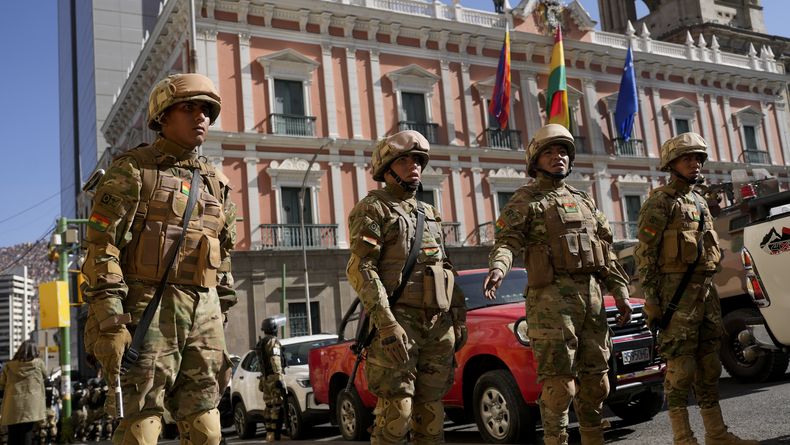The Bolivia Coup: Everything You Need to Know - 27 June 2024
The Bolivia Coup: Everything You Need to Know - 27 June 2024
Overview of Events
On June 27, 2024, Bolivia experienced a significant political upheaval that is being widely referred to as a coup. This event marks a dramatic turn in Bolivia’s recent history, with implications for its political stability, economy, and social fabric.
How It Began
The origins of the coup can be traced back to escalating tensions over several months. Key factors included widespread dissatisfaction with the government's economic policies, particularly issues related to currency shortages and fuel distribution. Truckers had been staging protests and roadblocks throughout June, demanding these issues be addressed. On June 26, a military mutiny in La Paz signaled a critical breakdown in the government’s control (Crisis24) (BTI 2024).
Immediate Causes
The coup was precipitated by a combination of political and economic crises. Bolivia has been grappling with significant economic challenges, including a steep decline in gas exports and rising public debt. These economic pressures were exacerbated by allegations of corruption and inefficiency within the government, leading to public unrest and a loss of confidence in leadership (BTI 2024).
The Role of International Influence
International dynamics also played a crucial role. There have been longstanding accusations of U.S. involvement in Bolivian politics, aiming to destabilize governments that do not align with U.S. interests.
Historical patterns of U.S. intervention in Latin America suggest that external forces may have contributed to the recent events, seeking to shift Bolivia back towards a more neoliberal and pro-U.S. orientation (Canary).
Key Players
- Military and Security Forces: The military’s role was pivotal, as their mutiny against the government highlighted deep divisions within state institutions.
- Protest Groups: Truckers and other civic groups who had been protesting economic conditions played a significant role in mobilizing public dissent.
- Government Officials: Key figures in the government faced intense scrutiny and pressure, ultimately leading to their ouster.
Economic Impact
The coup is expected to have severe economic repercussions. Bolivia’s economy, already under strain from declining gas exports and high public debt, is likely to face further instability. International investors may be wary, leading to reduced foreign direct investment and economic growth (BTI 2024).
Social and Political Implications
Socially, the coup has deepened existing divisions within Bolivian society. Indigenous communities and other marginalized groups, who have historically supported left-wing governments, are particularly concerned about potential rollbacks in social and economic gains achieved over the past decades.
Politically, the coup could lead to a reconfiguration of power, with potential for both increased authoritarianism and intensified political conflict. The restoration of order and stability will depend on how new leadership addresses the root causes of discontent and manages the transition of power.
Conclusion
The June 27, 2024 coup in Bolivia is a complex event with deep-rooted causes and far-reaching consequences. Understanding its origins, key players, and impacts is essential for grasping the current and future trajectory of Bolivian politics and society.
For further insights and updates, you can refer to detailed reports and analyses from sources like the Crisis24 (Crisis24), BTI 2024 Country Report (BTI 2024), and The Canary (Canary).




Comments
Post a Comment